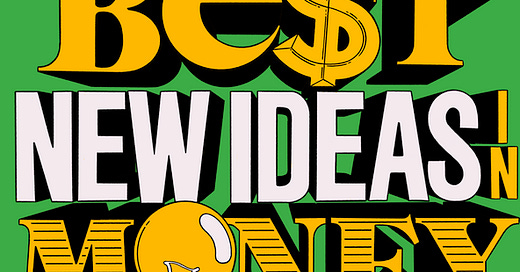As many of you know, I co-host a weekly podcast called the Best New Ideas in Money. This week’s episode focuses on the economy and, specifically, the debate about whether we’re in, headed for, or likely to escape a recession. I shared my own views, but the episode really features two former central bank economists—Claudia Sahm and David “Danny” Blanchflower—with different takes on where we are at the moment.
You can click below to listen, and you can subscribe to the podcast here. If you have ideas for future shows or a question you’d like us to answer in a future mailbag episode, drop us a line at bestnewideasinmoney@marketwatch.com.





Please find a way to provide transcripts of your podcasts and interviews. I'm deeply interested in what you have to say, but reading is a lot faster than watching a video and I don't have a lot of extra time.
Thank you.
Every ruling elite protects its position of power by making direct changes to their system extremely difficult or even verboten via acculturated taboos and/or orthodoxies that close people's minds to such direct changes. This is the case with the current paradigm for the creation and distribution of money. New paradigms are always in direct conceptual opposition to the current paradigm and are also accompanied by new tools and/or insights that illuminate the efficacy of the new paradigm. The new monetary and financial paradigm of Direct and Reciprocal Monetary Gifting fulfills all of the above signatures.
The tools of the FED are indeed very few and inadequate. Why bemoan the problem or offer up reforms that can be gamed and reverted when an entire and permanent paradigm change is possible?
I'm not here to refute anyone's theories and insights, in fact I've already affirmed the theoretical legitimacy of MMT and other movements here. Can we please discuss the concept and policies I've posted about here? If I can learn anything from such discussion I welcome it. If I can contribute to an awareness of how to resololve our economic problems that would be even better.